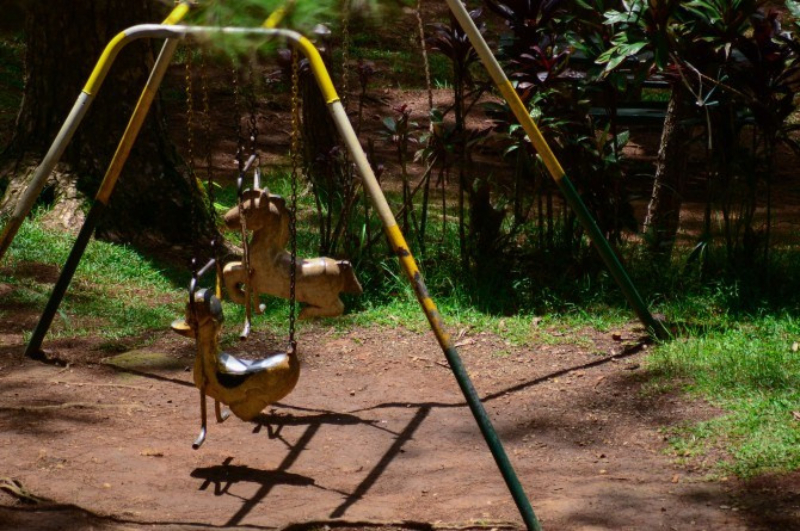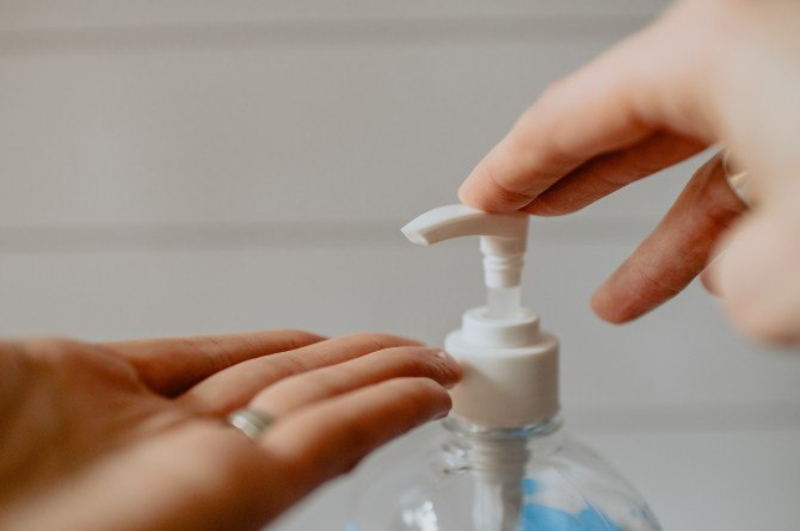Mum on TikTok asked to 'stay home' for sanitising entire park for toddler to play. Careful or paranoid?


If there's one thing the Covid-19 pandemic really brought forward, it's the fact that the human species really have been an unhygienic lot.
However, with over 200 million cases worldwide, we've finally figured out the importance of wearing a face mask, washing our hands regularly, and taking a bath every now and then.
While the latter may be a controversial topic, let's all agree that wearing a mask and using a sanitiser are simply non-negotiable habits in today's times.
The pandemic still brings a lot of uncertainty, especially with the mutational abilities of the virus. A case in point is the new Delta variant that has turned out to be transmissible at a higher rate.
So, it's okay if you wouldn't like to take a chance with your health or that of your loved ones. If you want to follow extensive cleaning and sanitizing procedures before you use things, it certainly feels justified.
That being said, can excessive precaution make you either careful or paranoid? The internet was in a debate about this after a mum's video went viral on the social media app TikTok.

TikTok user Katelyn, who goes by her handle katelynmhhh on the app, recently shared a short video of her sister cleaning the entire climbing frame at a park with an anti-bacterial spray.
[[nid:499524]]
The mum to a little girl went the extra mile both sides and even paid the toll when it came to cleaning the park for her daughter to play.
Katelyn captioned the video saying, "She really doesn’t play about my niece."
No ma'am, she does not.
The video is rather cute and you can see the toddler waiting patiently to get on the climbing frame and have fun.
However, she needs to wait till the mum has sanitised the complete frame.
Well, hats off to the little one for being understanding enough.
The TikTok video has received over two million views since it was first uploaded and has received some polarising views.
[embed]https://www.tiktok.com/@katelynmhhh/video/6990002954690432262?sender_device=pc&sender_web_id=6944981924373120514&is_from_webapp=[/embed]
While some think the mum's actions are justified given the nature of the pandemic, others think she may be going overboard with the anti-bacterial spray.
One user wrote the mum should "just stay home" if she's so concerned about her little one picking up bacteria.
Another user mentioned, "Those chemicals (from the disinfectant) are more harmful than the germs at the park, just stay at home then."
Another wrote, "Then why even go if your [sic] so protective about it?"
One user commented that the body has its natural defence mechanism that works better than the anti-bacterial spray. They wrote, "Immune systems are pretty amazing... Chemicals ruin them."
"Imagine thinking you can get rid of germs on an outside playground, " said another.
[[nid:480176]]
Thankfully, there were many who supported the mum as well. Several users pointed out that its great to take extra precaution in the time of the Covid-19.
One user wrote that the Covid-19 germs are different from regular bacteria, which is why the mum has every right to be cautious.
Another user wrote, "I don't know why everyone is mad, in a time of Covid where a kid still wants to enjoy things, what's the harm?"
"All I see is a mother trying her best to keep her baby safe. Go you," said another.

While a lot of people may think the mum is paranoid, the alarming number of cases does justify it to an extent. Moreover, children presently are the most vulnerable lot given the fact they are yet to get the vaccination.
So, until then, parents need to take utmost precaution to ensure kids can have fun outdoors in a protected environment.
Covid-19 infection notwithstanding, parents should take extra effort to boost their child's natural immunity. And you can achieve this by some natural lifestyle changes that can be achieved at home without too much hassle.
Here are five easy ways to boost your child's immunity:
ALSO READ: 5 medical expenses that could occur in your child's first 6 years
This article was first published in theAsianparent.